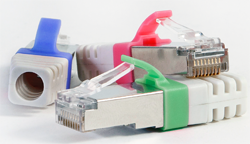EU Cookie Law
From 26th May 2012, all UK websites will need to comply with the new EU E-Privacy Directive 2009/136/EC. Cookies are only a small part of this directive and whilst you are still allowed to use cookies on a website, it must be made clear to visitors to your site that cookies are being used. A message or warning must be displayed so that the visitor is aware of them.
At the bottom of our website, we have displayed a message to warn you that our website makes use of cookies and that one has already been set. By displaying this message we hope that we are providing you with the information you require about our use of cookies and presenting you with the option to consent to their use. This message will be displayed until such time that you agree to our site using cookies by clicking on the continue button.
What is a cookie?
A cookie is a small amount of data, often including a unique identifier, sent from the website to the browser of your computer or mobile phone (referred to here as a "device"). It is stored on your device's hard drive. Each website can send its cookie to your browser if your browser's preferences allow it. To protect your privacy, your browser only permits a website to access the cookies it has already sent to you, and not the cookies sent to you by other websites. Many websites do this whenever a user visits them to track online traffic flows.
On the Hughes Electronics website, our cookies record information about your online preferences so we can tailor the site to your interests. You can set your device’s preferences to accept all cookies, notify you when a cookie is issued, or not receive cookies at all. Selecting the last option means you will not receive certain personalised features, which may result in you being unable to take full advantage of all the website's features. Each browser is different, so please check the "Help" menu of your browser to learn how to change your cookie preferences.
During any visit to our website, every page you see, along with a cookie, is downloaded to your device. Many websites do this because cookies enable website publishers to do useful things, like finding out whether your device (and probably you) has visited the website before. On a repeat visit this is done by the website’s computer checking to see, and finding, the cookie left there on the last visit.
How do we use cookies?
Information supplied by cookies can help us analyse the profile of our visitors, which helps us provide you with better user experience.
How to delete or control cookies
This site will not use cookies to collect personally identifiable information about you. However, if you wish to restrict or block cookies set by this, or any other website, you can do this through your browser settings. The Help function within your browser should tell you how.
For information on how to do this on your mobile phone’s browser, you will need to refer to your device manual.
Please be aware that restricting cookies may impact on the functionality of this website.










